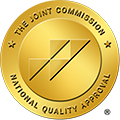Each new year brings an opportunity to make a fresh start with healthy changes. One initiative that has gained popularity over the years is Dry January, a public health campaign urging people to abstain from alcohol for the first month of the year. This movement, which began in the UK and has since spread globally, is a chance for “sober curious” people to experience the benefits of being alcohol-free.
The Challenge of Dry January
The concept of Dry January is straightforward – abstain from drinking any alcohol for the entire month of January. You may take this challenge if you want to give your body a break from the damaging effects of alcohol, save money, and prove to yourself that you can go a full 31 days without drinking.
However, you may discover that abstaining from alcohol for a whole month isn’t as easy as it initially sounds, especially if you are used to regular consumption. The difficulty lies in breaking a habit, resisting the urge to drink, and dealing with the emotional and physical responses that come with cutting out alcohol.
- Physical withdrawal: Depending on factors like how often you drink and how long you have used alcohol, you might experience withdrawal symptoms, which can range from mild discomfort to severe health complications like delirium tremens.
- Social pressure: Many social events and gatherings revolve around drinking. Avoiding alcohol can be challenging in these environments, particularly when faced with peer pressure.
- Emotional reliance: Many people use alcohol as a crutch to manage stress, anxiety, or other emotional issues. Without it, you might feel vulnerable or exposed.
The Role of Outpatient Detox
Acworth Outpatient Detox offers crucial support for people who have trouble abstaining from alcohol or other substances, even for short periods. Here’s how our program can help you.
- Medical supervision: Medical professionals can provide safe and effective treatment to manage uncomfortable withdrawal symptoms.
- Counseling and therapy: Counseling sessions can be instrumental in addressing the underlying emotional or psychological reasons for substance dependence.
- Flexibility and continuity: One of the leading benefits of outpatient detox is the ability to get the help you need without disrupting your daily responsibilities. You won’t have to put your life on hold or adjust to living in a residential facility.
- Building a support network: These programs build a community with professionals and peers, which can be invaluable during and after the detox process.
Are You Sober Curious?
Dry January is more than a monthlong challenge; it’s a gateway to exploring and changing your relationship with alcohol. Staying sober for 31 days is straightforward for some people, but can reveal a risky physical or psychological dependency for others.
Acworth Outpatient Detox provides the necessary resources for people who find themselves struggling to quit drinking or taking drugs. If you’re considering Dry January but are concerned about your ability to abstain, remember that help is available and it’s OK to ask for it. Contact us today to learn more about quitting drinking on your terms.






